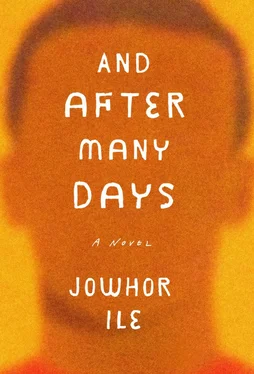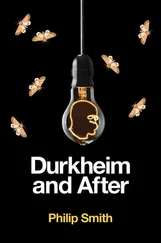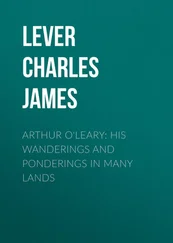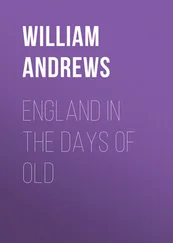“This secondary school we have now, that our children attend — people from other villages come here now for school — how long did we stay before it was built? The only primary school we have, is there anyone in this room who doesn’t know how that came about?” Nwokwe paused for a while, as if expecting someone to respond to his questions. “Did the government know us before now?” he asked, looking around the room. “Did any tarred road run to us before? Does this village lead to anywhere? So why do we talk as if we don’t know these things? And because I speak my own truth, the truth that I see with my two eyes, does that mean I’ve accepted a bribe from outsiders against my own people?
“If not for Company, would we have the mono pump that gives us water? How many villages — count it yourselves — around here have tap water? Do they not drink from their wells still? Without Company, mosquitoes would be eating us up here in the mangrove, and all these people in the government wouldn’t have known we even exist.”
“So, you have not accepted money from anyone?” Bendic asked.
“He has eaten money, that is why his mouth is so sweet for them,” someone said from the benches before Nwokwe could respond. Ajie saw it was Morgan, a muscular man who had a reputation as a radical member of the OYF.
“I want all of you to listen to what I am saying today and mark it on a wall somewhere,” Nwokwe continued gravely. “Some of you forget we are a small people. All these bigger groups in this country who go in and out of government, do you think they would look in our direction if we didn’t have oil? We can all disappear from here in a single afternoon, all of us in the whole twenty-four Ogba villages, and they wouldn’t even notice. They wrestle for power among themselves as if we don’t count. As our people say, when the elephants have a wrestle, it’s the grass below that feels the stampede. One day you will say that I said it. All I want to tell you is this: Let us stay close to Company; what they are offering may not be the best, but we can’t be claiming our rights and then lose out completely.”
“They have offered you money,” Ikpo said as he stood up, pointing a finger at Nwokwe. Ikpo was a man of about fifty. “They have offered you money, and you may have accepted, so that their gas pipes can run past behind your house. You think we are fools?” Ikpo’s voice was level but hard. He looked like the sort of man who, in his younger days, would have invited whatever was to happen tomorrow to happen right now. “I won’t blame you if you want to accept, or if you have accepted, but at least have the decency to keep your mouth straight when you speak. And as you are taking this money, do us a favor and tell them that pipeline shall begin and end at your house. It will be a very short pipeline. I don’t know if anyone else here has grown soft enough in the head to join you. And if gas fire burns, it is your family who will be consumed, since you have decided to go deaf in both ears.”
“So that is what you wish for me.” Nwokwe’s voice came back wounded. “That my family be destroyed. All of you sit down here and listen to what this man wishes on his brother.”
“You will be the one wishing it on yourself,” Ikpo retorted.
The meeting stretched until Paul and Ajie got bored and went downstairs to meet the other children at the usual place by the water tank stand, over which the house had thrown a huge shade. They sat on the rungs of the steel ladders, dangling their feet, catching up on things. The sun dipped toward Uhwo and turned the sky orange red.
Ajie and Ossai emerged from the hedges and followed the path beside the flower fence. Someone watching from the church would see only one head bobbing above the flat top of the flowers. Ossai was a clear head taller, even though he was barely two months older than Ajie.
They walked past the church and smelled the tannin that was poured regularly all over the window and door frames to keep termites away. Across the road, in the schoolyard, the old gmelina trees stretched their vast branches and littered the ground with fruits. Ossai stepped over them, but Ajie squashed some underfoot, making the juice squirt, mapping their trail with a darker, inky brown.
It was around seven-thirty in the morning, and they were heading for a quick wash in a nearby swamp. Ajie had been idling in bed when Ossai arrived; he told Paul he was going out. He threw a bar of soap, a sponge, and a fresh change of clothes into a plastic bag and left with his friend. Paul, who’d had an early shower in the bathroom downstairs, was back in bed and didn’t look away from his book when Ajie spoke. Ajie and Ossai shut the door to the staircase, and the house sank deeper into that quietness houses often settle into right after breakfast at holiday times, just before the steady flow of visitors begins.
“Gmelina stains never wash out,” Ossai said as he looked back at Ajie. His own fresh clothes were in a black cellophane bag clutched under his arm.
“I’m not wearing white,” Ajie replied, “so it doesn’t matter.”
The edges of the school’s football field were well marked, and at either end of the field was a standard-size goalpost. They walked past the classroom block to their right and then the school farm behind it, and by the corner was a path that led to the bush. Grass brushed against Ajie’s ankles. He walked a few paces ahead of Ossai as they filed into the bush, taking care not to slip on the clay earth. Creepers, bracken, and bamboo emerged in a rush of darkish green, and the canopy of clustered trees dimmed the sun.
It felt odd to have appeared here, three minutes away from the road. And it wasn’t just the filtered gloom and coolness. Each time he stepped into this swamp, Ajie felt that it claimed him, glazed and held him apart from the world outside.
They heard a rustle. Ahead of them was a man in a brown loincloth, climbing down a palm tree. He held on to a harness with one hand, and with the other he held a blue keg foaming with palm wine freshly tapped from the tree. They greeted him when they got to the foot of the palm wine tree, and he grunted back at them and continued his business.
The two boys came into a clearing where wild jewel orchids were pushing out their last flowers. They stripped and bunched their clothes together on top of a shrub by the pond. Ossai first gave his shorts a quick wash, rubbing and kneading the cloth as it squished out lather, then a final rinse. Ajie sat at the edge of the pond, dipped his toe in it, and flicked the water. He cleared the water lilies to a corner and squatted beside the pond, looking into the opaque green water. A warm crack of sunlight fell through the trees and touched his back. He dived. The splash was as loud as his dive was clumsy, and then a hush fell over the space. The water bubbled and rippled. It was as if the swamp held its breath for a few seconds and then let go in a rowdy babble that rose sharply among the startled birds in the trees.
“It’s dangerous to dive in like that,” Ossai said, easing into the water. “There are usually sticks at that end of the pond. People set their nets there sometimes, so you need to check first.”
Ossai rubbed his head and body with a green soap that smelled clean and rubbery, like an eraser. Ajie climbed out of the pond and searched in his bag on the side. The green Palmolive soap was too big to hold in one hand, so he held it with both. He smeared it on his head and all over his body, then let himself back into the pond.
They dried themselves, and Ossai moved his drying clothes to a spot where the sun had gained ground. He shivered a little in the sunlight, then picked up a stone and flung it across the pond. It startled a little bird by the bank.
Читать дальше
